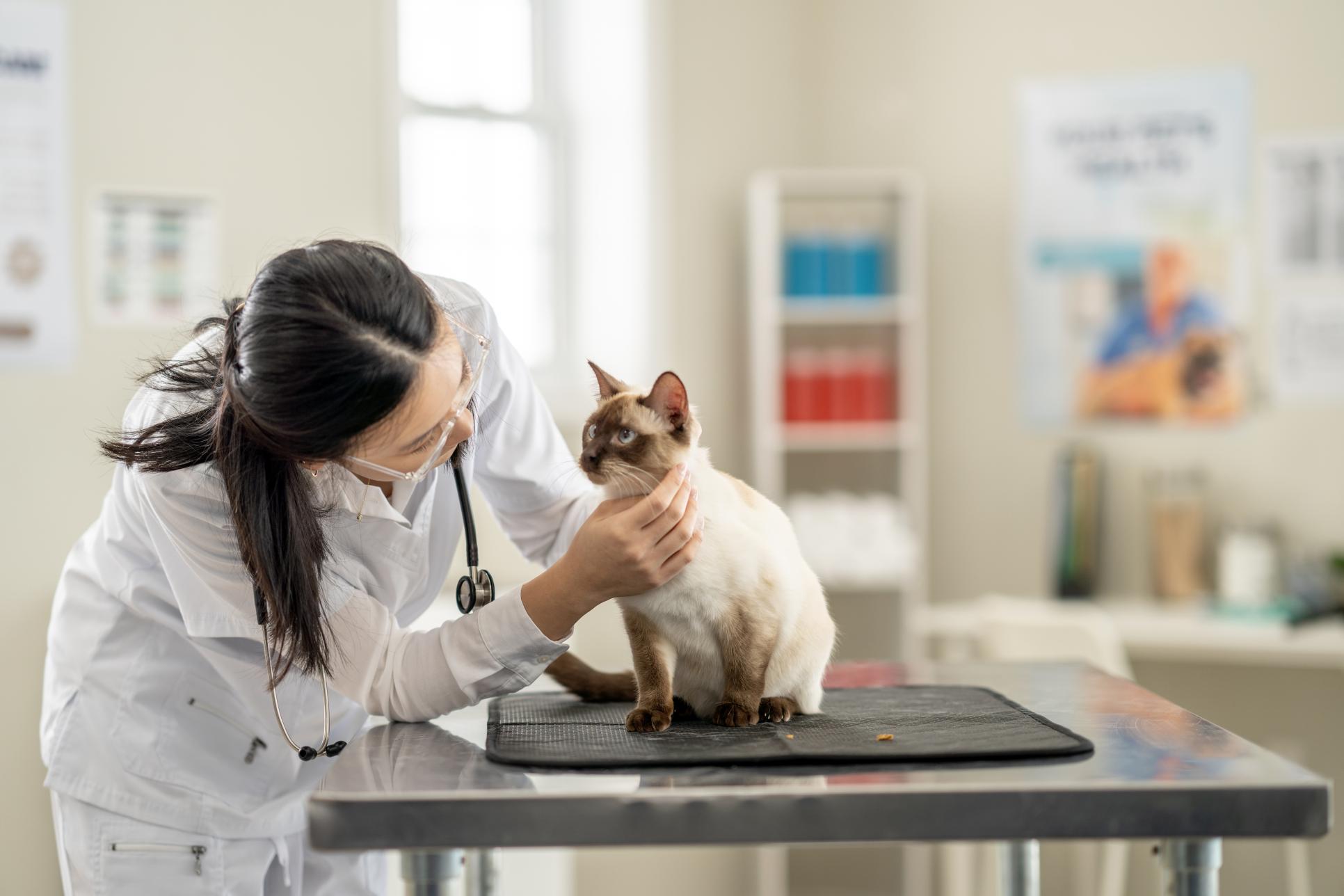Reasons for Fast Breathing in Cats

Many of the things our cats do are pretty mysterious. From the act of purring and vocalizations to cramming themselves into small spaces, there is a lot we humans have yet to understand about why cats do what they do. Fast breathing in cats, though, is something that we have a pretty good handle on. Keep reading to learn why your kitty may be exhibiting rapid respiration and when it requires immediate medical attention.
Reasons for Fast Breathing in Cats
Smaller animals breathe faster than larger animals in general. This means that the normal respiratory rate for a cat is much faster than that of a human. Watch how many breaths your cat takes over the course of a minute (how many times their chest rises). Anything over that is considered tachypnea (increased breathing rate).
Increased breathing rate might be caused by:
- Physical exertion (was your cat just playing?)
- Anxiety
- Pain
- Stress
- Heat
- Trauma
- Medical respiratory problems
If your cat’s increased breathing isn’t explained by environmental factors, or if it persists, it is generally time to consider it a medical issue.
Respiratory Problems in Cats
There are many medical causes of fast breathing in cats that need to be considered. Because many of them can appear similarly, often diagnostics need to be completed in order to better understand what is happening.
Symptoms such as rapid breathing, coughing, wheezing, and sneezing can be caused by:
- Cardiac disease—Cats can be affected by heart disease. It can be from birth (congenital) or acquired (developed over time) of various underlying causes. If this leads to congestive heart failure, respiratory symptoms including increased respiratory rate can occur.
- Feline asthma—Many cats are affected by feline asthma. Kitty asthma can cause inflammation of the lower airways exacerbated by airway irritants and allergens.
- Primary lung disease—Problems that affect the lungs themselves, such as bronchitis, pneumonia, or even tumors can affect breathing.
- Anemia—Because red blood cells carry oxygen to the body’s tissues, if there are not enough of them, breathing rate may increase.
- Parasites—Infection with unwanted guests such as heartworms or lungworms can affect the airways, leading to coughing and changes in breathing.
- Infectious disease—Viral and bacterial illnesses can lead to respiratory symptoms.
- Irritation of the airways—Inhaled irritants such as smoke, perfume, or dust can lead to respiratory changes.
Finding out what the cause of the breathing issues might be is important so that we can treat it appropriately. You should contact us at Thunder Bay Veterinary Urgent Care right away if your cat is having prolonged faster-than-normal breathing, is coughing repeatedly, has ocular or nasal discharge, has obvious labored breathing, or is acting sick or abnormal.

